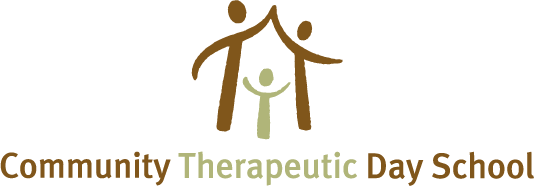Community Consultations
CTDS not only works with children and families of children enrolled at our school, but we also extend the outreach of our capabilities and educational and therapeutic services in the greater community. Described below are the ways in which we help beyond our enrolled students.
For further information please contact us at: 781.861.7081
Diagnostic Consultations
In the course of a year CTDS provides diagnostic consultations to more than 100 children. A few may eventually attend our school and we refer many to private day programs. We support others in their public school classes by providing or facilitating additional therapy support and educational services. Consultations involve children of all ages at the request of parents, or by referral from counseling, educational and medical professionals. We serve as consultants to parents seeking to better understand their child’s needs.
Throughout the diagnostic process we integrate the many interconnected facets of a child’s development in the following ways:
Physical Development
Speech and Language Development
Intellectual Capacity
Educational Functioning
Social and Emotional Maturity
Executive Functioning (i.e. capacity for judgment, reflection and organizational abilities)
Other areas of consideration are:
Genetics
The child's place in his/her family and culture
Often a child has participated in many other evaluations . We help the family to understand and make sense of these reports. In our extensive experience and work with the whole child we offer a clear, impartial and comprehensive perspective integrating the many aspects of a child’s condition.
“I’ve attended many meetings about our child over the years, but not too often did I come away with a sense of possibilities. Our meeting today was different" —Parent attending a diagnostic consultation
Neuropsychological Evaluations
Neuropsychological testing can be a powerful diagnostic tool, but more importantly, it can provide understanding and initiate change for the individual struggling with vulnerabilities. With the knowledge and insight gained from neuropsychological testing, new strategies relevant to the individual’s strengths and weaknesses can be applied. In addition, the individual’s environment may be adapted to support more efficient functioning. These interventions allow for a more productive life without the fatigue, frustration & humiliation that often accompanies failure.
Amelia Lofaro, Psy.D conducts our neuropsychological evaluations. To view our full brochure click here.
Autism Diagnostic Evaluation
In an effort to meet the high need for early identification and treatment of Autism Spectrum Disorder (ASD), CTDS provides a neurodevelopmental evaluation completed by a licensed clinical psychologist which is designed to screen for a diagnosis of Autism in children 31 months of age and older. This assessment process is designed to be comprehensive but targeted to assess for the presence (or absence) of Autism symptoms. The process will include an initial diagnostic parent interview and review of developmental history, approximately two hours of testing with the child (including the ADOS-2 and brief cognitive/language skill screeners), collateral parent/teacher rating scales, meeting to discuss results and recommendations, and provision of a written report which outlines whether a diagnosis of Autism is appropriate and provides recommendations and rescouces for needed services.
Therapeutic Services
The Individual with Disabilities Education Act (IDEA) is a comprehensive Federal Law that mandates, “Free appropriate education for all children with disabilities”. Throughout the country this concept is called ‘mainstreaming’ or ‘inclusion’. The Community Therapeutic Day School is actively involved in consulting to public schools. Within the framework of public education we help to design well-orchestrated programs for children with disabilities. We also utilize the ‘Profile’ as a therapeutic assessment, teaching and learning tool in this community work. Clinical and educational services within the public school may include the following:
A trained therapeutic tutor to work 1:1 with the child
Individual and group child guidance work with parents
Occupational and speech therapy
Supervision and consultation with public school staff
Design and support self contained classrooms
Psychotherapy: Individual & Group
CTDS believes that although some children require the more intensive support of a private school, others can be mainstreamed in the public school. The key to providing therapeutic education is the integration of the child’s complex needs including medical, educational and social. The program design reflects the child’s specific needs.
“The children that come from Community Therapeutic Day School to Cotting School are socialized, thoughtful and aware of themselves and the parents are strong advocates of these children in a careful, thoughtful and aware way. There are no quick fixes for children with complex special needs. But, CTDS has the professional expertise, consistency and patience it takes to meet each child’s emotional, cognitive, linguistic and educational needs. Their work with each student’s parents, siblings and extended family members is a model in our field." —Dave Manzo, President, Cotting School
Community Sibling Groups
Community Sibling Groups are designed to help an exceptional and often overlooked population of children: Siblings of children with special needs. These siblings are in complex social and psychological circumstances and have needs of their own that require attention and support.
Our Community Sibling Groups are designed to provide a safe and supportive setting where siblings can explore and discuss their individual experience of having a brother or sister with special needs; addressing both their complicated feelings and celebrating their joys and successes. They develop skill to better understand their relationship to themselves and to their brother or sister, while providing the distinctive opportunity for siblings to connect with peers in similar circumstances.
For full details of this group, view our Community Sibling Group Brochure here.




